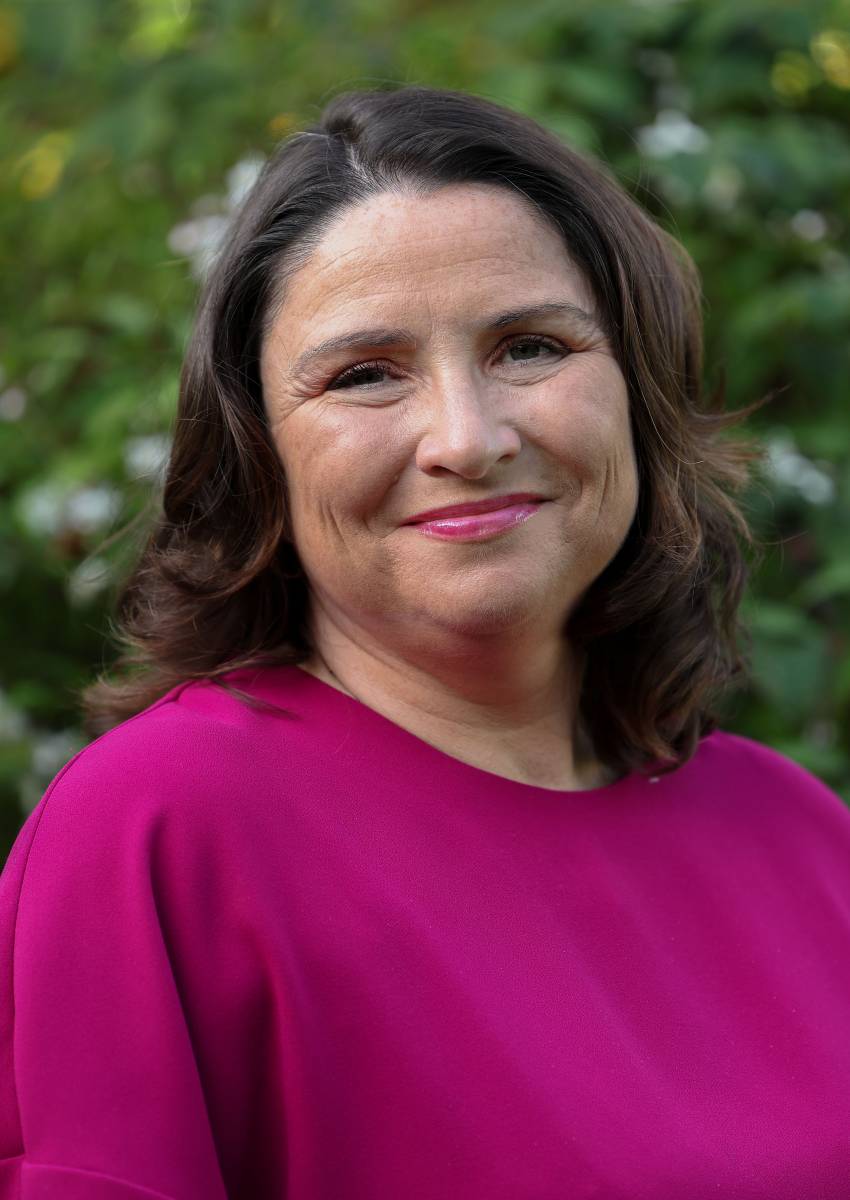Marie O Mir highlights 'irony' of having no physios or other HSCPs on older people's care commission
The chief executive of the Irish Society of Chartered Physiotherapists (ISCP) has criticised the make-up of new national Commission on Care for Older People, which has been awarded government funding worth about £1 million.
Taking to X (formerly Twitter) last week, Marie Ó Mír [pictured] claimed it was ‘not the first time’ that politicians have chosen not to include physios and other health and social care professionals (HSCPs) when launching key health-related initiatives.
Dr Ó Mír said: ‘The irony of focusing on health and social care services with no representation from HSCPs!’
She took over the reins at the ISCP from Ruaidhri O’Connor in 2023, the year in which the organisation celebrated its fortieth anniversary. The professional body represents more than 3,000 chartered physiotherapists in Ireland.
Dr Ó Mír said she regretted the fact that health minister Stephen Donnelly and Mary Butler, the minister for mental health and older people, had not appointed anyone who was an HSCP to the commission. The decision reflected a ‘lack of insight’ over the ‘vital role’ that the workers play in ‘managing the health of the population'.
‘This is a commission on the very people we serve, but no place for us,’ she added.
HSCPs are 'second largest clinical grouping'
According to the National Health and Social Care Professions Office, HSCPs represent the second largest clinical grouping within the healthcare workforce. Physiotherapy constitutes one of the 26 HSCPs, which collectively provide interventions in therapeutic, rehabilitative, re-enablement, health and social care and diagnostic services. HSCPs work in all settings including acute, community, disability, specialist, mental health, primary care, residential and services for older people. Occupational therapy, podiatry and radiography are some of the other professions categorised as HSCPs.
The HSE (Health Service Executive) employs more than 18,000 HSCPs, who make up 25 per cent of the clinical workforce and 14 per cent of the overall health services workforce.
First meeting held on 21 March
The commission’s remit is to focus on how best Ireland’s health and social care services can meet the needs of the country’s older population. It will also look at how all government departments can best support positive ageing across the life course.
The commission – which is chaired by Professor Alan Barrett, chief executive Officer of the Economic and Social Research Institute – had its inaugural meeting on 21 March. Members with medical backgrounds include David Smith, associate professor of health care ethics at the Royal College of Surgeons in Ireland, and Emer Ahern, a consultant in trauma and orthogeriatrician at Cork University Hospital. Dr Ahern is national clinical adviser and group lead, Older Persons, Health Service Executive. Dr Ahern is currently the President of the Irish Gerontological Society.
Ireland is recognised as being 'age friendly'
Speaking at the launch event, Ms Butler said: ‘Ireland was the first country to be formally recognised by the World Health Organization as “age friendly” in 2019.
‘We have one of the highest life expectancies in the EU, notwithstanding an ageing population. I welcome that the Commission will look at the challenges and opportunities of an ageing population as part of the ongoing strategic development of health and social care services.
Ms Butler added: ‘By appointing representatives of the community and voluntary sectors, and importantly of older people themselves, I am hopeful the commission’s work will be better informed by the lived experience of older people across the country. This will ensure that we can deliver access to timely, high-quality, person-centred, integrated care in the most appropriate settings.’
The commission's brief
In Module 1, commission members will explore current services and learning for the future, particularly focusing on health and social care services, models of supported living for older people and policy initiatives in the social care system.
Module 2 will explore options for the future, particularly focusing on the strategic development of health and social care, the strategic development of capital infrastructure, new technologies, and funding and resource allocation.
A report will be prepared after Module 2 for consideration by the Minister for Health and Minister of State for Mental Health and Older People detailing the challenges and opportunities identified, and presenting a costed framework for the overarching strategic development of health and social care services and supports for older people that advances national strategic objectives.
Subsequently, a cross-departmental group will be established under the auspices of the commission to consider whether the supports for positive ageing across the life course are fit-for-purpose and to develop a costed implementation plan.
Funding worth €1.2 million was secured in the 2024 budget to support the commission’s work.
Author: I A McMillanShare it with















